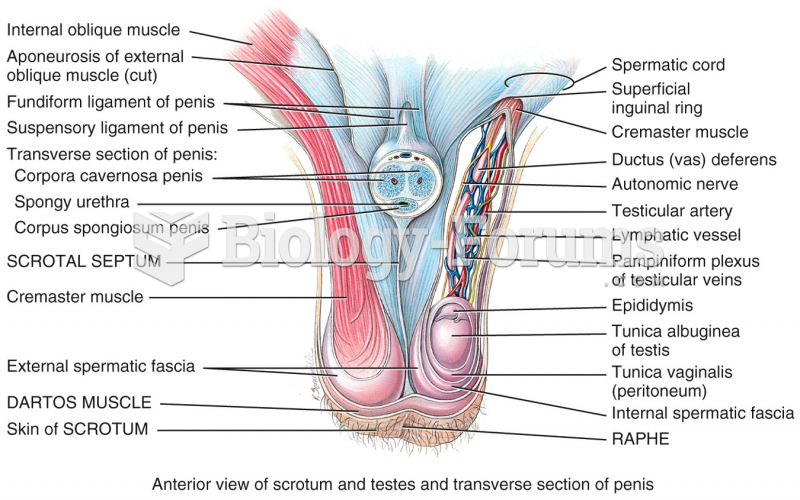|
|
|
More than 4.4billion prescriptions were dispensed within the United States in 2016.
Drying your hands with a paper towel will reduce the bacterial count on your hands by 45–60%.
An identified risk factor for osteoporosis is the intake of excessive amounts of vitamin A. Dietary intake of approximately double the recommended daily amount of vitamin A, by women, has been shown to reduce bone mineral density and increase the chances for hip fractures compared with women who consumed the recommended daily amount (or less) of vitamin A.
The most destructive flu epidemic of all times in recorded history occurred in 1918, with approximately 20 million deaths worldwide.
In most cases, kidneys can recover from almost complete loss of function, such as in acute kidney (renal) failure.







